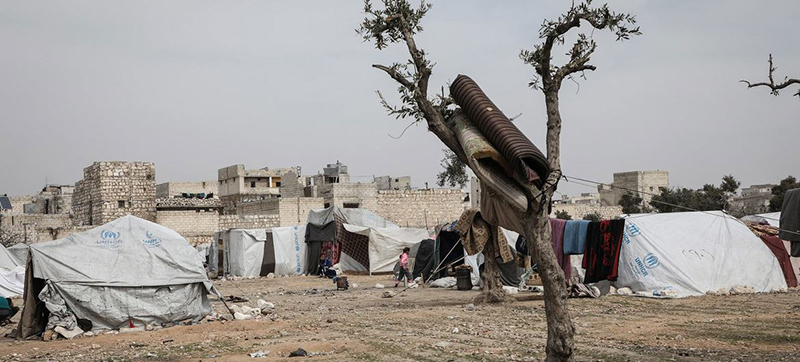 Syria
Syria New York: Syrians are facing an “ever worsening humanitarian crisis” amid the ongoing 12-year-long conflict, top UN officials told the Security Council on Thursday, as the General Assembly adopted a resolution to create a first-of-its-kind institution to address the issue of more than 100,000 people still missing in the country.
“The violence and suffering of the Syrian people remind us of what is at stake as diplomatic efforts continue on Syria,” said Najat Rochdi, UN Deputy Special Envoy for the country. “Ultimately, we need a nationwide ceasefire in line with Security Council resolution 2254.”
Worsening crisis
Briefing on current conditions, she said recent reports have tracked deadly drone attacks, shelling, terrorist attacks, and a spate of pro-Government airstrikes.
“Syrians face an ever-worsening humanitarian crisis,” she said.
Against this backdrop, Syrians still face massive displacement, an acute economic crisis, and the tragedy of the detained, disappeared, and missing, she said.
“All of these factors show us why it is so important for renewed diplomacy to translate into real solutions to meet the immediate concerns of the Syrian people, build some trust and confidence among the parties, and move forward towards a political solution,” she stressed.
“Syrians’ needs must be at the centre of our approach, and humanitarian action must be depoliticized,” she added.
Humanitarian update
Martin Griffiths, the UN Humanitarian Affairs chief and Emergency Relief Coordinator, echoed that call.
“Twelve years of conflict, economic collapse, and other factors have pushed 90 per cent of the population below the poverty line,” he said, adding that a recent visit to the Syrian capital of Damascus left him “with a greater sense of the profound humanitarian challenges but also the urgent opportunities facing Syria”.
Amid the ongoing violence, sharply rising food prices, recovery from the devastating earthquakes in February, and a spreading cholera outbreak, he said the humanitarian community’s “best chance” to improve the future of the Syrian people is further expanding early recovery activities.
Cross-border aid lifelines
Equally important is the Council’s 12-month renewal of its resolution on cross-border operations, which will improve humanitarian conditions, he said.
Calling for increased international support, he said the UN and its partners currently “have limited means to help the most vulnerable people in Syria”, with the $5.4 billion UN humanitarian response plan less than 12 per cent funded.
He said a $200 million deficit will force the World Food Programme (WFP) to slash by 40 per cent its emergency food aid to Syrians for next month.
“The humanitarian response in Syria is at a critical juncture, as is the future of Syria itself,” he said. “Considerable challenges are apparent, but so are important opportunities if we can leverage recovery funding, if we can continue to be present in northwest and northeast Syria, and if we can turn our attention to sectors which have such a central role in determining basic needs”, such as electricity and water.
“We can only address these issues if we can make our presence one of partnership and support to the people who suffered these many years,” he said.
Finding 100,000 missing Syrians
On Thursday afternoon, the UN General Assembly adopted a draft resolution to establish a first-of-its-kind institution that will work to reveal the fate of an estimated 100,000 people missing or forcibly disappeared in Syria.
The resolution was adopted by a vote of 83 in favour to 11 against, with 62 abstentions.
Ahead of the vote, Deputy Special Envoy Rochdi had told the Security Council that many of the families of the missing were looking to the world body's vote today “with hope that a new entity dedicated to the issue of missing persons in Syria could bring some measure of relief” to those in and outside the country “who have been demanding their right to know the truth”.
Security Council extends UNDOF mandate
In other business, the Security Council unanimously adopted a resolution renewing the mandate of the UN Disengagement Force (UNDOF), established in 1974 to, among other things, maintain a ceasefire between Israel and Syria.
Support Our Journalism
We cannot do without you.. your contribution supports unbiased journalism
IBNS is not driven by any ism- not wokeism, not racism, not skewed secularism, not hyper right-wing or left liberal ideals, nor by any hardline religious beliefs or hyper nationalism. We want to serve you good old objective news, as they are. We do not judge or preach. We let people decide for themselves. We only try to present factual and well-sourced news.







